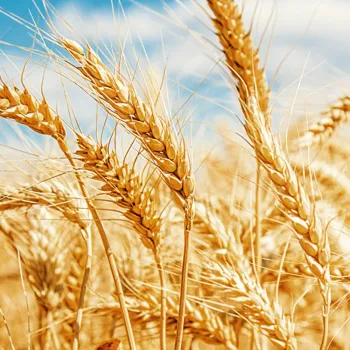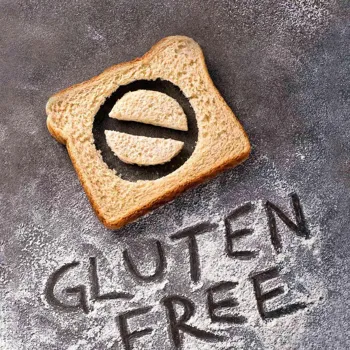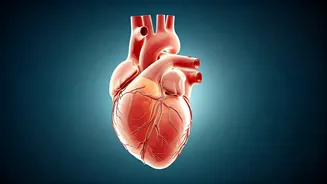Unraveling the Gluten-Free Trend: Is It Truly Healthier? Dive into 10 Key Insights to Decide Wisely. Explore now!
In the bustling streets of India, where food is practically a religion, a new mantra has
been gaining traction: "Gluten-Free." From fancy cafes in Delhi to health food stores in Mumbai, gluten-free products are popping up everywhere. But is cutting out gluten automatically a ticket to better health?
Before you jump on the bandwagon, let's separate fact from fiction and explore 10 important insights you should consider.
Gluten-free diets have become increasingly popular, with many believing they offer a healthier alternative to traditional eating habits.
However, it's crucial to understand that simply removing gluten doesn't guarantee a healthier lifestyle. A balanced diet rich in fruits, vegetables, and lean proteins remains essential for overall well-being. People are cutting on gluten without any professional consultation, this can be dangerous.
It is always better to consult a dietician.
Gluten: The Real Story
Gluten is a protein found in wheat, barley, and rye. It's what gives bread its chewy texture and holds baked goods together. For most people, gluten poses no problem at all. We Indians have been eating it for years and are doing great.
It's only a concern for those with celiac disease, gluten sensitivity, or wheat allergy. These problems might require a change in diet and doctors mostly advice to include gluten free diet during these conditions. It also depends on case and severity.
Celiac Disease: A Serious Matter
Celiac disease is an autoimmune disorder where gluten triggers an immune response that damages the small intestine. This can lead to nutrient deficiencies, digestive problems, and other health complications.
For individuals with celiac disease, a strict gluten-free diet is not a choice but a medical necessity. They need to be extra careful and very conscious. Gluten is very harmful in this case. It can also be very painful.
Gluten Sensitivity: The Gray Area
Non-celiac gluten sensitivity (NCGS) is a condition where people experience symptoms like bloating, fatigue, and headaches after eating gluten, even though they don't have celiac disease or a wheat allergy.
The exact cause of NCGS is still being researched, but a gluten-free diet can often provide relief. Many people that are not able to digest regular wheat products might have Gluten sensitivity. One can test for it at an earlier stages.
Wheat Allergy: Not Just Gluten
A wheat allergy is an allergic reaction to any protein found in wheat, not just gluten. Symptoms can range from mild skin rashes to severe anaphylaxis.

A wheat-free diet is necessary for managing a wheat allergy, and it may or may not include gluten-free products, depending on the specific wheat proteins that trigger the allergy. The symptoms are similar to gluten sensitivity but need to be diagnosed by experts.
The Nutritional Value of Gluten-Free Foods
Just because a product is labeled "gluten-free" doesn't automatically make it healthy. Many gluten-free processed foods are high in sugar, unhealthy fats, and additives to compensate for the lack of gluten.
They may also be lower in fiber and essential nutrients compared to their gluten-containing counterparts. Always read the nutrition labels carefully. Look for whole, unprocessed gluten-free options like fruits, vegetables, and millets.
Also check if there are artificial sweeteners added in the gluten free products.
The Fiber Factor
Wheat-based products, like whole wheat bread and pasta, are often good sources of fiber. Fiber is essential for digestive health, regulating blood sugar levels, and promoting feelings of fullness.
When you eliminate gluten, you may need to find other sources of fiber, such as fruits, vegetables, lentils, and gluten-free grains like quinoa and brown rice. Many people don't get enough fiber in their diet, so it is extremely important to keep fiber rich food in the diet.
The Cost Consideration
Gluten-free products often come with a higher price tag than their gluten-containing counterparts. This can be a significant burden for individuals and families on a budget. Consider focusing on naturally gluten-free whole foods like rice, lentils, and vegetables to save money.
Eating healthy is important as its directly linked to your mental as well as physical health. Many experts also suggest to consume fresh fruits and veggies.
The Importance of a Balanced Diet
A gluten-free diet is not a magic bullet for weight loss or overall health. If you're not careful, you could end up consuming more calories, sugar, and unhealthy fats than you did before.
A balanced diet that includes plenty of fruits, vegetables, lean proteins, and healthy fats is crucial for overall well-being, regardless of whether you eat gluten or not. Do not solely rely on gluten free products available in the market.
The Impact on the Gut Microbiome
Research suggests that gluten can affect the composition of the gut microbiome, the community of bacteria that live in your digestive system. A gluten-free diet may alter the gut microbiome, potentially leading to both positive and negative effects.
More research is needed to fully understand the long-term impact of gluten-free diets on gut health. Avoid packaged food as much as possible to protect your microbiome.
The Role of Consulting a Professional
If you suspect you have celiac disease, gluten sensitivity, or a wheat allergy, it's essential to consult a doctor or registered dietitian. They can help you get an accurate diagnosis and develop a personalized dietary plan that meets your individual needs.

Don't self-diagnose or start a gluten-free diet without professional guidance. This could be dangerous and harmful in the long run so avoid as much as possible.
Before making drastic changes to your diet, consulting a healthcare provider or registered dietitian is highly recommended.
They can assess your individual needs, conduct necessary tests, and provide personalized advice. Gluten-free diets are beneficial for those with specific medical conditions like celiac disease or gluten sensitivity, but they're not inherently healthier for everyone.
A balanced, nutrient-rich diet is fundamental for overall well-being
In India, where diverse cuisines and culinary traditions thrive, it's important to make informed choices about your diet.
While gluten-free options can be valuable for certain individuals, remember that a balanced and mindful approach to eating is the key to a healthy and fulfilling life. Do not just follow the trend because everybody is doing it.
















